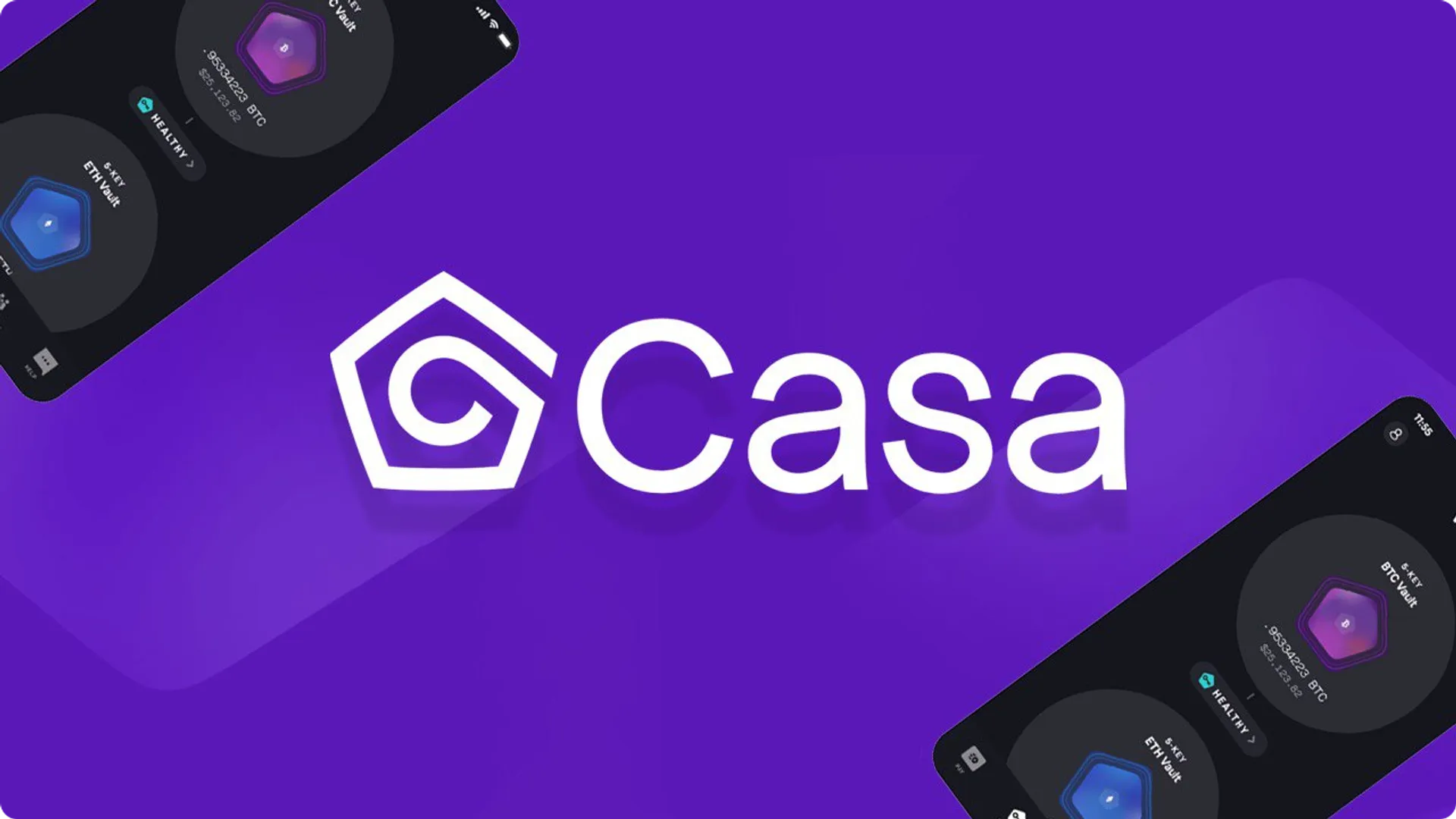Managing your own Bitcoin keys is essential but can be intimidating for many of us.
Collaborative custody solutions like position themselves as a sweet spot between full solo self-custody and trusting a third party custodian.

Casa implements a collaborative custody model where you maintain primary control while receiving support with multi-signature security. This review examines how Casa balances security, usability, and privacy for Bitcoin holders.
Key Features
- Multi-Signature Security: 2-of-3 (Standard) or 3-of-5 (Premium) with guided setup
- Low-friction signup: Email account required; no invasive KYC for membership or recovery (you may use a pseudonym). Inheritance setup requires no PII/KYC (recipient email only)
- Inheritance: Included on all plans; supports leaving BTC, ETH, USDC, USDT to a recipient with Casa’s process
- Mobile Applications: iOS and Android apps with health checks and recovery workflows
- Support Structure: Customer assistance for setup and recovery scenarios
What Is Collaborative Custody?
Collaborative custody utilizes multi-signature technology, requiring multiple keys to authorize transactions.
In Casa’s implementation:
- You control the majority of keys
- Casa holds one key as a backup
- Transactions require both your involvement and additional security layers
This approach aims to maintain user sovereignty while providing recovery options.
Curious about how collaborative custody works in practice? Read our detailed guide
Casa Overview
- Founded: 2016
- Headquarters: Denver, Colorado
- Security Model: 2-of-3 or 3-of-5 multi-signature configurations
Casa handles technical aspects of Bitcoin security, including backup management, multi-signature implementation, and hardware wallet integration through a guided user experience.
Service Offerings
1. Multi-Signature Security
- Two primary service tiers:
- Standard ($250/year): 2-of-3 multi-signature setup (Casa holds 1 key)
- Premium ($2,100/year): 3-of-5 multi-signature setup (for higher security requirements)
- Implementation using hardware wallets with one mobile key option
- Key health verification tools
- Support for BTC, ETH, USDT, and USDC
2. Guided Setup and Recovery
- Casa walks you through every step
- Hardware wallet pre-purchase options
- Backup tips, recovery walkthroughs, and regular health checks
3. Inheritance Planning
Casa includes a built-in inheritance service on all plans. Your family can work with Casa to access your Bitcoin if something happens to you. Standard inheritance requires no invasive KYC or legal documentation. Note: Private Client (U.S.) offers an optional Enhanced Verification flow that uses government IDs at setup and a death certificate at transfer (trade-off: no waiting period).
Who Is Casa Best For?
Casa is ideal if:
- You want the benefits of multi-sig security but don’t want to manage everything solo
- You value a polished app and easy onboarding
- You’re holding a meaningful amount of Bitcoin long-term
- You want built-in inheritance options
- You want live support and personal onboarding
Casa may not be the best fit if:
- You want total privacy (Casa stores extended public keys (xpubs) to provide UX features, enabling address and transaction visibility—though they cannot spend your funds)
- You’re looking for free or very low-cost custody for small balances
- You want loan options (Casa doesn’t offer loans or IRAs)
Pricing and Plans
| Plan | Price (Annual) | Security Model | Inheritance | Onboarding/Support |
|---|---|---|---|---|
| Standard | $250 | 2-of-3 multisig | Included | Email support; self-guided setup |
| Premium | $2,100 | 3-of-5 multisig | Included | 1-on-1 video onboarding & recovery support |
| Private Client | Custom | 3-of-5 (with extras) | Included | Dedicated advisor; enhanced options |
What Makes Casa Stand Out?
Casa isn’t trying to be everything. They focus on easy, secure Bitcoin, Ethereum, and stablecoin self-custody, and they do it well.
Final Thoughts
Casa attempts to simplify Bitcoin security management without removing user control entirely.
Their mobile app is user-friendly. Their customer support is strong. And their tiered plans let you start small and scale security as your holdings grow.
For users seeking assistance with their security setup—particularly those without technical backgrounds or maintaining significant holdings—Casa represents one option worth considering alongside other custody models.
Frequently Asked Questions
Can Casa access or move my Bitcoin?
No. Casa can view activity because they store extended public keys (xpubs) for UX features, but they can’t spend your funds without your keys. You always hold the majority of keys needed to authorize transactions.
What happens if Casa shuts down?
You’ll still hold the majority of keys. You can use saved public key information to perform Sovereign Recovery with open-source tools (Casa documents exporting public keys for this purpose).
Is Casa open-source?
No. While Casa uses open standards for multi-signature implementation, their applications and infrastructure are proprietary.
Is Casa available internationally?
Yes. Inheritance is available worldwide. Some enhanced verification features for Private Client are U.S.-only.